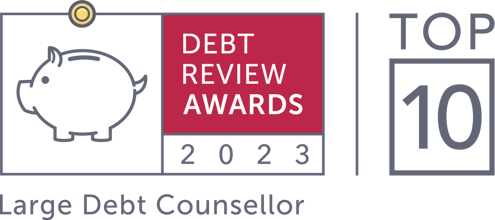How to Deal with Debt Collectors
Learn effective strategies to deal with debt collectors and clear your debt in South Africa with this blog post.
Understanding Debt Collectors and Their Role
Debt collectors play a crucial role in the debt collection process in South Africa. They are individuals or companies hired by creditors to recover outstanding debts from consumers. They are then paid a percentage of the amount collected and also often charging service fees for collecting outstanding debt. Debt collectors have the legal authority to contact debtors, negotiate repayment plans and take legal action if necessary.
Debt collectors are governed by the National Credit Act (NCA) in South Africa, which sets out specific guidelines and regulations they must adhere to. They are prohibited from using unfair or unethical practices when collecting debts, such as harassment, threats, or misrepresentation. As a debtor, you have certain rights protected by the NCA, including the right to be treated with dignity and respect, the right to dispute a debt and the right to request proof of the debt.
Assessing Your Financial Situation
Before taking any action to clear your debt, it is important to assess your financial situation. This involves evaluating your income, expenses, and outstanding debts to determine your ability to repay. Start by creating a detailed budget that includes all your sources of income and expenses, such as rent or mortgage payments, utility bills, groceries, and transportation costs.
Download your FREE, customisable budget template here to create your budget now!
Next, calculate your total debt and prioritize your repayments. Identify which debts are urgent and require immediate attention, such as those with high interest rates or overdue payments.
Assessing your financial situation will provide you with a clear understanding of your debt obligations and enable you to make informed decisions on how to address them effectively.
Understanding the debt collections process in South Africa
- Courtesy call
- While this is not a required step, a creditor will likely give you a call you to let you know you’ve missed a payment.
- Receive a letter of demand (Section 129 Notice) explaining that you have missed a payment of your account and have an outstanding balance owing.
- If you’ve received a Section 129 Notice, take this seriously. This is the last step before legal proceedings can begin against you.
- Did you know: If you have defaulted on your account for 90 days, a creditor will likely hand over your account to a debt collector.
- If you don't make any arrangements to pay your account after 10 days of receiving a Section 129 Notice, a debt collector or creditor can approach a court for a judgement to be handed down.
- If a judgement is granted, a Sheriff of the Court can request that you appear in court by issuing you with a summons.
- You can then either pay the outstanding fees and accept the judgement or you can defend it.
- If, however, you choose to not respond to the summons, the court can issue a warrant of execution. This can be to initiate a garnishee order or repossess your assets.
Exploring Debt Repayment Options
Once you've understood your financial situation and you understand the debt collections process, it is important to explore different debt repayment options that may be available to you. There are several strategies you can consider depending on your financial situation and the amount of debt you owe.
Debt consolidation loan
One option to consider is a debt consolidation loan. This involves combining multiple debts into a single loan usually with a lower interest rate. This can simplify your repayments and potentially reduce the total amount you owe.
Debt settlement
You can approach your creditors and ask for a settlement amount. This would usually be a reduced amount compared to the total amount owing.
Debt counselling through a reputable debt counseling agency
This involves working with a Debt Counsellor who will first check to see if you are over-indebted. They will then negotiate with your creditors on your behalf to reduce your interest rates on your loans and create a repayment plan that fits your budget. This can help you repay your debts in a manageable way and potentially reduce your total debt amount.
Meerkat was voted as one of The Top 10 Large Debt Counsellors in the country!

Each debt repayment option has its own advantages and disadvantages, so it is important to carefully evaluate each option and choose the one that best suits your financial goals and circumstances.

.jpg?width=640&height=360&name=Untitled%20design%20(31).jpg)
